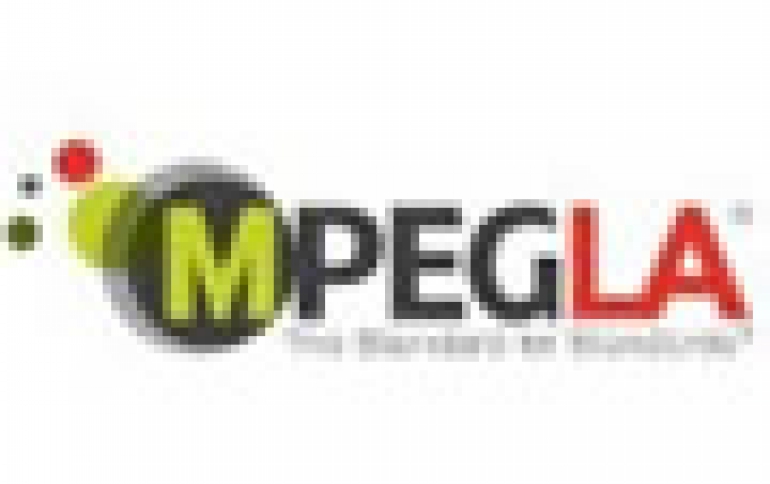
MPEG LA To Create Patent Pool For H.265 Video Codec
Licensing company MPEG LA, LLC has facilitated a 'High Efficiency Video Coding' (HEVC or H.265) patent pool, calling companies holding
patents essential to the new video codec to participate to the new licensing scheme.
HEVC (also known as H.265 and MPEG-H Part 2) is intended to improve video coding efficiency for the benefit of mobile service providers and consumers. The new codec is expected to offer 30 to 50 percent boosts in compression efficiency over today's codecs, lowering the bit rate needed to support quality video transmissions. The lower bit rates of H.265 HEVC could enable such cameras more easily to send video wirelessly so their output could be monitored on remote smartphones or PCs and tablets via cloud services. The codec
is also expected to deliver next generation higher resolution HDTV video displays for 4K and 8K Ultra High Definition TV.
"By starting the joint license facilitation process now, the market can enjoy the earliest opportunity to plan for deployment of this promising new technology," said MPEG LA President and CEO Larry Horn. "MPEG LA is pleased to assist in facilitating a convenient, independently administered, one-stop patent licensing alternative to assist users with implementation of their technology choices and invites all patent holders to participate."
In order to participate in the initial facilitation effort for the creation of a joint HEVC License, MPEG LA invites any party that believes it has patents that are essential to the HEVC Draft 7 standard (or subsequent revisions that may issue) to submit an initial patent by September 7, 2012. HEVC Draft 7, available from the ITU-T/ISO/IEC Joint Collaborative Team on Video Coding (JCT-VC), is subject to further revisions by the JCT-VC; a final approved standard for HEVC is expected to issue around January 2013.
Although only issued patents will be included in the license, patent applications with claims that owners believe are essential to the currently published HEVC draft standards and likely to issue in a patent also may be submitted in order to participate in the license development process.
Until now, vendors have filed many patents relating to the H.265 HEVC technology. But so far just who owns what and how much they expect in royalties was unclear. MPEG LA's efforts could help the expansion of the new standard, although it is not clear whether all patent holders would be involved in pool, as they might prefer collecting royalties on their own.
"By starting the joint license facilitation process now, the market can enjoy the earliest opportunity to plan for deployment of this promising new technology," said MPEG LA President and CEO Larry Horn. "MPEG LA is pleased to assist in facilitating a convenient, independently administered, one-stop patent licensing alternative to assist users with implementation of their technology choices and invites all patent holders to participate."
In order to participate in the initial facilitation effort for the creation of a joint HEVC License, MPEG LA invites any party that believes it has patents that are essential to the HEVC Draft 7 standard (or subsequent revisions that may issue) to submit an initial patent by September 7, 2012. HEVC Draft 7, available from the ITU-T/ISO/IEC Joint Collaborative Team on Video Coding (JCT-VC), is subject to further revisions by the JCT-VC; a final approved standard for HEVC is expected to issue around January 2013.
Although only issued patents will be included in the license, patent applications with claims that owners believe are essential to the currently published HEVC draft standards and likely to issue in a patent also may be submitted in order to participate in the license development process.
Until now, vendors have filed many patents relating to the H.265 HEVC technology. But so far just who owns what and how much they expect in royalties was unclear. MPEG LA's efforts could help the expansion of the new standard, although it is not clear whether all patent holders would be involved in pool, as they might prefer collecting royalties on their own.
















